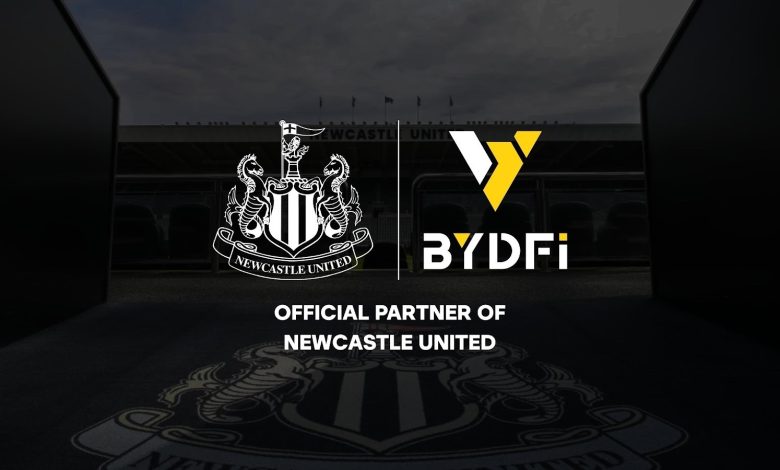NEWCASTLE UNITED ANNOUNCE MULTI-YEAR PARTNERSHIP WITH BYDFi

– Club joins forces with global cryptocurrency exchange –
– Collaboration will accelerate international growth and deliver new digital opportunities for fans –
Newcastle United has signed a multi-year partnership with global cryptocurrency exchange BYDFi, marking an important step in the club’s continued international expansion.
As the club’s Official Cryptocurrency Exchange Partner, BYDFi will work closely with Newcastle United to connect with the Magpies’ rapidly growing global fanbase, while showcasing its innovative financial solutions to new audiences worldwide.
The partnership will strengthen the club’s presence in key international markets, while giving supporters access to digital finance tools, expertise, and new experiences through BYDFi’s cutting-edge platform.
Commenting on the new partnership, Newcastle United’s Chief Commercial Officer, Peter Silverstone, said: “We’re excited to welcome BYDFi to the Newcastle United family. They’re an ambitious, forward-thinking brand whose mission to help people build their financial futures really resonates with us.
“Our club has seen incredible growth in recent years – since the 21/22 season our broadcast audience has ranked second among Europe’s top clubs, and in the Asia-Pacific region we now attract the fifth-highest Premier League TV audience. Add to that being the fastest-growing club on Premier League social media last season, and it’s clear our fanbase is expanding at a remarkable pace.
“This partnership gives BYDFi a fantastic platform to connect with our supporters around the world, and together we’ll be creating new digital experiences to bring fans even closer to the club.”
Michael Hung, Co-founder and CEO of BYDFi, added: “Lasting success, on the pitch or in finance, comes from doing the right things, repeatedly, over time. We’re honoured to partner with Newcastle United and to support a mindset where belief meets steady practice. That’s what ‘BUIDL Your Dream Finance’ means to us; BUIDL is our term for taking actions which turn ideas into reality.
“Partnering with one of Europe’s biggest clubs shows our ambition to continue our growth and reach new audiences. We are delighted to be working with Newcastle United and to reach their growing global fanbase.”
BYDFi, founded in 2020, now serves over 1,000,000 users across 190+ countries and regions. It offers a suite of crypto trading services for both beginners and seasoned investors, with a strong emphasis on compliance, education, and community-building. For more information, please visit www.bydfi.com



